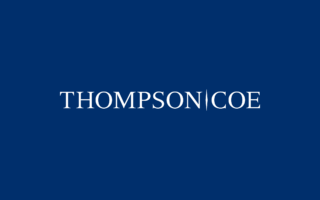Checking in on Exceptions to the Eight-Corner Rule
By Rhonda J. Thompson, Yunju (Rosa) Sung • Dec 2, 2024 • In DBA Headnotes November edition
A fundamental principle of insurance litigation is whether a liability insurance carrier’s defense obligation has been triggered by a particular pleading. Put simply, when an entity or individual is sued, a duty to provide a defense may be triggered when the allegations fall within the insurance contractual terms. In determining whether an insurance company has a duty to defend, Texas courts apply the “eight-corners” rule, where an evaluation of the “four corners” of the plaintiff’s petition is compared to the “four corners” of the insurance policy.
Generally speaking, the truth or falsity of the allegations is not considered, and not surprisingly, an incentive is generated to force a defense through possible collusion between the plaintiff and the defendant. This scenario was considered by the Texas Supreme Court in Loya Ins. Co. v. Avalos, when the Court expressly recognized an exception to the “eight-corners” rule. 610 S.W.3d 878 (Tex. 2020). The Avalos decision allowed for the development of and reliance upon extrinsic evidence to the pleading to demonstrate collusion.
In Avalos, the policyholder’s husband, who was expressly excluded from the relevant automobile liability insurance policy was driving the covered automobile when he collided with another car carrying the plaintiffs. The plaintiffs, the policyholder, and the policyholder’s husband all agreed to falsify their reports to the responding police officer and to the insurance company that the named policyholder was driving the insured vehicle rather than the husband. The policyholder eventually admitted under oath that the parties had agreed to make false statements.
Upon learning that the parties had colluded, the insurance company denied a defense and coverage. Contrary to the claimants’ argument that the “eight-corners rule” required the insurance company to provide a defense and coverage, the Texas Supreme Court held that courts may consider extrinsic evidence regarding collusion to make false representations of facts for the purpose of invoking an insurer’s duty to defend. The Court reasoned, “the insured has not paid for, a duty to defend the insured against fraudulent allegations brought about by the insured itself.”
Not surprisingly, there have been subsequent attempts to test the boundaries of the Avalos exception since the Texas Supreme Court’s ruling, although efforts to expand Avalos‘ application have largely failed. The most common distinction made by courts to reject application of Avalos is when a case involves a plaintiff’s “artful pleading,” a pleading filed by plaintiffs after discovery and review of the defendants’ insurance policy and apparently amended with an eye towards triggering otherwise unavailable insurance coverage.
One such case is Club Adventure Learning Center, LLC, where a parent of a minor child sued the daycare for physical abuse of the child. 674 F. Supp. 3d 362 (W.D. Tex. 2023). The defendant daycare’s insurance policy contained a physical abuse endorsement, and the insurance company asserted it owed no duty to defend or indemnify because of the alleged physical abuse. After the insurer sought a declaratory action, the plaintiff amended the pleading and omitted any allegations of physical abuse. The insurance company argued the Avalos exception should apply, given the sequence of events and amendment to pleadings after the coverage issues were identified. The court rejected the argument, stating the application of Avalos “requires evidence of collusion among the parties to the underlying suit—not just suspicious amendments to the pleadings.” Suspicious pleading amendments were not sufficient to allow the insurance company to introduce extrinsic evidence of the previously pleaded physical abuse allegations.
The evidence of collusion must also be conclusive to trigger the Avalos exception. For instance, in Certain Underwriters at Lloyd’s, London v. Keystone Development, LLC, the insurer urged consideration of extrinsic evidence that the parties in the underlying suit colluded to plead the suit under insurance coverage. 2022 WL 865891 (N.D. Tex. Mar. 23, 2022). However, the carrier submitted as evidence documents implicating only one party. The court rejected considering extrinsic evidence for the purpose of determining the insurance company’s duty to defend after first finding “[t]he extrinsic evidence Underwriter submits does not contain the same conclusive evidence of fraud as in Avalos and, therefore, is distinguishable.”
Avalos remains a viable, but admittedly narrow, exception to Texas’ eight-comer rule. Avalos was cited by the Texas Supreme Court when the Court allowed for an additional category of exception in Monroe Guaranty Insurance Company v. BITCO General Insurance Corporation, 640 SW.3d 195 (Tex. 2022). The Monroe exception allows courts to consider extrinsic evidence when there are information gaps in plaintiff’s pleadings. The Texas Supreme Court specifically found the Monroe exception should be applied differently from the Avalos exception. These two exceptions open the door to further efforts to allow for consideration of evidence extrinsic to combat artful, vague pleadings and efforts to invoke insurance beyond the bargain for liability risk:
“A contrary rule that ignores conclusively proven facts showing the absence of coverage would create a windfall to the insured, requiring coverage for which the insured neither bargained nor paid. Such a windfall would come at the expense of all consumers of insurance, who ultimately shoulder the expense of the insurer’s increased defense costs through higher premiums.”








